-
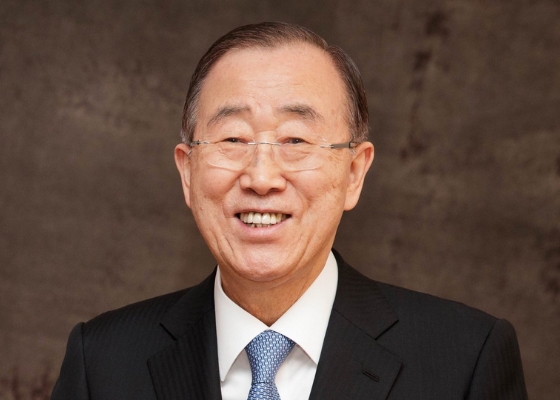
Ban Ki-moon says rich countries prioritise arming Ukraine over climate obligations
Business DayFrom Daegu, South Korea24th of May, 2022(Photo: Business Day)Ban Ki-moon, a former Secretary-General of the United Nations has accused Western countries of prioritising military assistance to Ukraine over their obligations to finance efforts to reverse climate change, largely caused by them.In a keynote address at the 28th edition of the World Gas Conference in Daegu, Republic of Korea, Ban Ki-moon, delivering an address themed “A Sustainable Energy Transition Towards Carbon Neutrality”, said a lack of political will was largely responsible for the non-commitment of western countries.Developed countries like the United States, the European Union and Japan committed to contributing $100bn every year as a way of encouraging climate adaptation action by developing countries in Copenhagen, Denmark 2009 to contribute.However, from 2009 to 2020, they contributed only $80bn said Ban Ki-moon, “the promise was to provide $100bn annually, the institutions set up to manage it, the Global Climate Fund (GCF) now located in Korea, last year, they were not able to do anything, and with all these crises happening in Ukraine the developed countries have put more priority on the Ukraine situation.”Russian President Vladimir Putin on February 24 ordered an invasion of Ukraine in what he called a ‘Special Military Operation” to purportedly rid its neighbour of Nazi sympathizers and prevent a drift towards the West.Read also: Climate change: Seplat Energy to plant five million treesBanki Moon said the attack was “unprovoked” and has seriously impacted the energy market sending oil and gas prices to levels last seen over a decade ago triggering energy supply crises in Europe and a looming food crisis across the world.“The people and country of Ukraine certainly deserve our strong, political and economic, and moral support but that does not mean that all this money earmarked for climate financing should be diverted to this current political issues,” said Ki-moon.At the United Nations COP 26 discussions held in Glasgow last year, member countries dithered on committing to fully funding adaptation activities in vulnerable parts of the world.“I don’t think it is a question of lack of finance, rich countries have the money, they have the financial capacity, but it’s a matter of political will,” said the former UN boss.The goal of adaptation finance is to reduce vulnerability to the harmful effects of climate change caused by highly industrialised nations. Governments, multilateral agencies, and private donors contribute to the funds aimed at financing adaptation around the world.Africa and other developing countries especially in coastal areas are particularly vulnerable to the impact of climate change even though their activities contribute little to climate change.The world’s poorest and most vulnerable communities are already struggling to cope with the impact of human activities on the environment as rising seas result in flooding and fertile lands morph into arid deserts.An Organisation for Economic Co-operation and Development OECD report released last year stated that over $20bn, about 25 percent of total climate finance goes to adaptation.“This is a fraction of the expected $300bn needed by 2030,” said Amina Mohammed, deputy secretary-general of the United Nations. “This is why the Secretary-General continues to call on all donors to allocate at least 50 percent of their climate finance on adaptation,” she said at COP 26.Now the modest contribution looks to cease entirely as the focus shifts on arming Ukraine to fend off Russian aggression.Six months after COP 26, the financing has all but paused. Ki-moon who is now a co-chair of the Global Center on Adaption, an institution that works on adaption financing said nothing was contributed at all last year as the crises in Ukraine now serve as a pretext for rich nations to mask their lack of political will.Ban Ki-moon, urged world leaders to take action now as time is running out, citing the recent Intergovernmental Panel on Climate Change (IPCC) report which says it’s “now or never” if the world is to stave off climate disaster.The chance of temporarily exceeding 1.5°C has risen steadily since 2015 when it was close to zero. For the years between 2017 and 2021, there was a 10 percent chance of exceedance. That probability has increased to nearly 50 percent for the 2022-2026 period.
-
- 1,728
-
- 31 May 2022
-
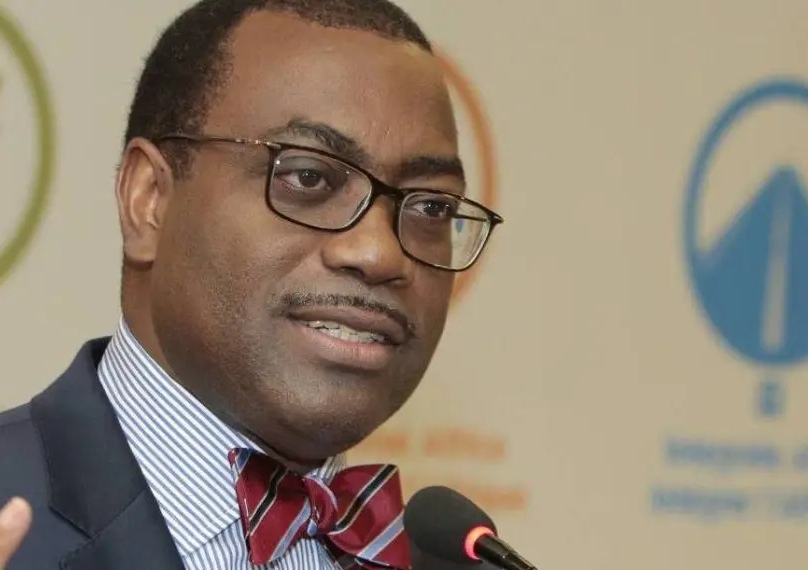
AfDB board approves $1.5 billion facility to avert food crisis in Africa
Premium Times Nigeria2022년 5월 21일(Picture: Official Facebook page of Mr Adesina)The African Development Bank (AfDB) Group’s board of directors announced that it approved a $1.5 billion facility to help African countries avert a looming food crisis in the continent.In a statement issued by the bank on Friday, the bank said with the disruption of food supplies arising from the Russia-Ukraine war, Africa now faces a shortage of at least 30 million metric tons of food, especially wheat, maize, and soybeans mostly imported from both countries.“The African Development Bank’s $1.5 billion African Emergency Food Production Facility is an unprecedented comprehensive initiative to support smallholder farmers in filling the food shortfall,” the bank’s statement read.It said African farmers urgently need high-quality seeds and inputs before the planting season begins in May to immediately boost food supplies.According to the statement, the initiative will provide 20 million African smallholder farmers with certified seeds and that it will increase access to agricultural fertilizers and enable them to rapidly produce 38 million tons of food.“This is a $12 billion increase in food production in just two years,” the bank said.Akinwumi Adesina, AfDB group president was quoted to have said: “Food aid cannot feed Africa. Africa does not need bowls in hand. Africa needs seeds in the ground, and mechanical harvesters to harvest bountiful food produced locally. Africa will feed itself with pride for there is no dignity in begging for food.”He said the African Emergency Food Production Facility has benefited from stakeholder consultations, including those with fertilizer producers and separately with African Union agriculture and finance ministers earlier this month.Mr Adesina explained that the ministers agreed to implement reforms to address the systemic hurdles that prevent modern input markets from performing effectively.He said the price of wheat has soared in Africa by over 45 per cent since the war in Ukraine began.“Fertilizer prices have gone up by 300%, and the continent faces a fertilizer shortage of 2 million metric tons. Many African countries have already seen price hikes in bread and other food items. If this deficit is not made up, food production in Africa will decline by at least 20% and the continent could lose over $11 billion in food production value, ”the AfDB president said.PotentialsThe African Development Bank’s $1.5 billion package will lead to the production of 11 million tons of wheat; 18 million tons of maize; 6 million tons of rice; and 2.5 million tons of soybeans, the statement said.It said the initiative will provide 20 million farmers with certified seeds, fertilizer, and extension services and that it will also support market growth and post-harvest management.“The African Development Bank will provide fertilizer to smallholder farmers across Africa over the next four farming seasons, using its convening influence with major fertilizer manufacturers, loan guarantees, and other financial instruments,” the AfDB board said.The statement highlighted that the facility will also create a platform to advocate for critical policy reforms to solve the structural issues that impede farmers from receiving modern inputs.This, it said, includes strengthening national institutions and overseeing input markets and that the facility has a structure for working with multilateral development partners.“This will ensure rapid alignment and implementation, enhanced reach, and effective impact. It will increase technical preparedness and responsiveness. In addition, it includes short, medium, and long-term measures to address both the urgent food crisis and the long-term sustainability and resilience of Africa’s food systems,” the bank said.In her remarks, Beth Dunford, AfDB vice president for Agriculture, Human and Social Development, said: “The Africa Emergency Food Production Facility builds on lessons learned from the African Development Bank’s Feed Africa Response to Covid-19 program.”The program, she said, has provided a strategic roadmap to support Africa’s agriculture sector and safeguard food security against the pandemic’s impact.Over the past three years, the AfDB said its Technologies for African Agricultural Transformation initiative has delivered heat-tolerant wheat varieties to 1.8 million farmers in seven countries, increasing wheat production by 2.7 million metric tons worth $840 million.Long-term sustainability planThe statement noted that a five-year ramp-up phase will follow the two-year African Emergency Food Production Facility, with the view to build on previous gains and strengthen self-sufficiency in wheat, maize, and other staple crops, as well as expand access to agricultural fertilizers.It said the five-year phase will deliver seeds and inputs to 40 million farmers under the “Technologies for African Agricultural Transformation program”.The statement said in April, UN Secretary-General António Guterres, appointed Mr Adesina to a select Steering Committee of the Global Crisis Response Group.It noted that the U.S. Senate Appropriations Subcommittee on State and Foreign Operations recently invited Mr Adesina to make a presentation about the African Emergency Food Production Facility.“The Global Alliance for Food Security spearheaded by the Government of Germany provides an excellent forum for the African Emergency Food Program Facility, which is part of a coordinated and collective effort by development partners and countries to accelerate food production in the short term while remaining focused on medium- and longer-term actions to build resilience.” the statement added.
-
- 1,773
-
- 24 May 2022
-
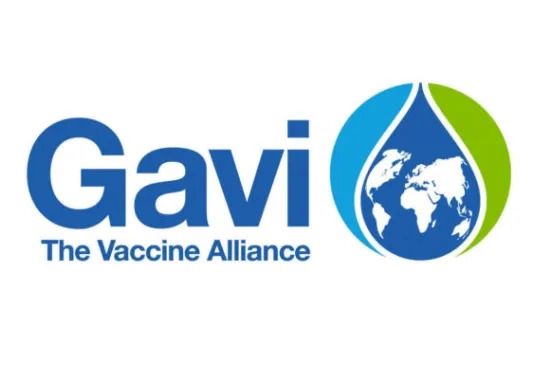
COVAX surpasses 1.5 billion COVID-19 vaccine deliveries
Premium Times Nigeria2022년 5월 21일COVAX has surpassed the milestone of 1.5 billion COVID-19 vaccines delivered around the world, following a shipment of 2.26 million doses of the Johnson & Johnson vaccine to Tanzania.A little over 15 months since its first international delivery to Ghana, COVAX has now shipped COVID-19 vaccines to 145 countries across the world.Nearly 90% of these have been fully funded doses delivered to lower-income countries supported by the Gavi COVAX Advance Market Commitment (AMC). COVAX is the major supplier of COVID-19 vaccines in low-income countries and humanitarian settings.As the largest and most complex global vaccination effort in history, COVAX’s work has helped raise the proportion of people in 92 lower-income countries protected by a full course of vaccines to 46% on average.Dr. Seth Berkley, CEO of Gavi, the Vaccine Alliance, which manages the COVAX Facility and the Gavi COVAX Advance Market Commitment (AMC), and leads on procurement and delivery at scale for COVAX, comments on this milestone: “This is a significant milestone for COVAX, set up as an unprecedented global collaboration during the worst public health emergency in a hundred years, but more importantly, we are proud to have contributed to the incredible achievements of lower-income countries, who have administered nearly 4 billion doses of COVID-19 vaccines in a truly historic global rollout.“Tanzania is a fitting example of the hurdles that have been overcome and the challenges that remain: the pandemic is not over, and we must remain committed at all levels to pushing coverage rates higher, focusing on ensuring those at high risk are fully protected. With plentiful global supply now available to support this effort, the next 3-4 months are crucial.“We call on countries to set ambitious targets backed by concrete plans for implementation and on all partners to provide countries with the resources needed to accelerate and expand national strategies.“COVAX remains committed to working with partners to ensure lower-income countries can access both vaccines and the support needed to turn these vaccines into vaccinations.”
-
- 1,783
-
- 24 May 2022
-
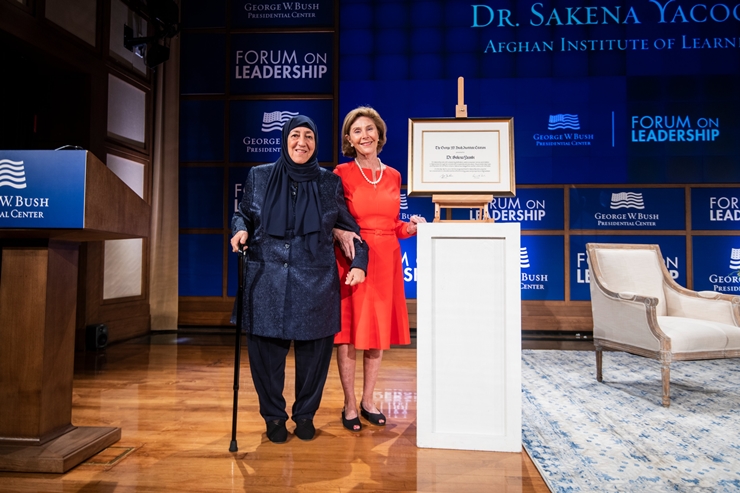
George W. Bush Presidential Center Announces Theme and Speakers for 5th Annual Forum on Leadership
George W. Bush Presidential Center2022년 4월 12일(Picture: Forum on Leadership)Dallas, Texas (April 12, 2022)— The George W. Bush Presidential Center announced the theme, Our Nation’s Calling, for the fifth annual Forum on Leadership. Hosted by President George W. Bush and Mrs. Laura Bush, the Forum is a landmark gathering that develops, recognizes, and celebrates leadership by bringing together notable voices for in-depth discussions on today’s pressing issues. The event will be held on April 21 at the Bush Center.The Forum will feature a keynote conversation about our Nation’s great responsibility with General James Mattis, 26th United States Secretary of Defense, plus a conversation on America’s leadership in global health with Bush Institute Senior Fellow Dr. Deborah Birx, and Dr. Stephen Hahn, Harbinger Health CEO and former Commissioner of the U.S. Food and Drug Administration. In addition, the Forum will include a conversation on economic opportunity and higher education with Mitch Daniels, President of Purdue University; and a conversation on the state of our economy with Elaine Chao, 24th U.S. Secretary of Labor and 18th U.S. Secretary of Transportation, and Gary Cohn, Vice Chairman of IBM and 11th Director of the National Economic Council.The gathering will be highlighted by the presentation of the George W. Bush Medal for Distinguished Leadership to James A. Baker, III, the 61st United States Secretary of State. The George W. Bush Medal for Distinguished Leadership is awarded annually to an individual who has made an impact on the global community, has inspired others to action, and has demonstrated a sustained commitment to improving the lives of others.“We need to support and celebrate leaders who are providing opportunity for all and protecting freedom and democracy in the United States and abroad,” said Ken Hersh, President and CEO of the George W. Bush Presidential Center. “The Forum on Leadership spotlights strong and principled leaders who are answering the call to serve.”At the 2022 Forum on Leadership, the Bush Institute Citation will be presented to Sakena Yacoobi, Afghan Institute of Learning Executive Director, for her work advocating for the women and girls of Afghanistan. The Citation is awarded annually to recognize a leader or organization who has made an impact in their community and has inspired others to take action to solve today’s most pressing challenges.In addition, the George W. Bush Institute Trailblazer Citation, awarded to an innovator that has effected change in the North Texas region or has otherwise enriched the quality of life in North Texas, will be presented to Daron Babcock, CEO of Bonton Farms, for his leadership and community engagement in North Texas and beyond.
-
- 1,770
-
- 24 May 2022
-
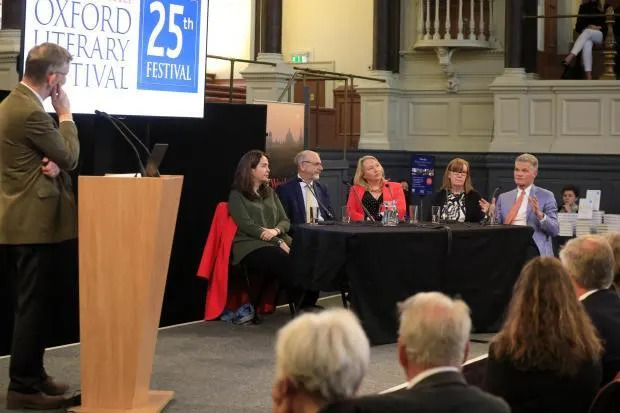
AstraZeneca scientists honoured at Oxford ceremony
Yahoo Finance2022.03.30(Picture: Yahoo Finance(Lee Atherton))Five brilliant scientists whose development of the AstraZeneca vaccine saved countless lives across the world in the Covid 19 pandemic were collectively honoured in Oxford this week.In an affecting ceremony at the Sheldonian Theatre on Monday the quintet received trophies commemorating their work from the hands of the University Chancellor Lord Patten.They came in the shape of ceramic cups commissioned from artist Edmund de Waal by the FT Weekend Oxford Literary Festival, now in its 25th year and continuing in an ambitious program till Sunday.The awards, the festival’s first for science and innovation, went to the Oxford Vaccine Group leader Prof Sir Andrew Pollard, the SAID professor of vaccinology Dame Sarah Gilbert, professor of vaccinology and immunology Teresa Lambe, Prof Catherine Green of the Nuffield Department of Medicine’s clinical biomanufacturing facility and Sir John Bell, the Regius Professor of Medicine.Lord Patten said the immense value of their work could not be overestimated, nor should it be overlooked that three of the five were women.While Oxford held its place in the annals of scientific endeavour in the development, for instance, of penicillin, the creation of the AstraZeneca vaccine “rated with the greatest things that this university has ever achieved”.Measured against the huge value of their work, he said that the modesty of the scientists was remarkable.The packed audience at the Sheldonian gave a standing ovation to the five, whohad answered questions on their work from the journalist and broadcaster Nick Higham.Paying further tributes to them all was the Swedish Ambassador Mikaela Kumlin Granit.Her presence recognised the Anglo-Swedish nature of drugs giant AstraZeneca, whose ‘no profit’ approach to supplying a billion-plus doses of the vaccine brought worldwide acclaim.
-
- 1,925
-
- 24 May 2022
-
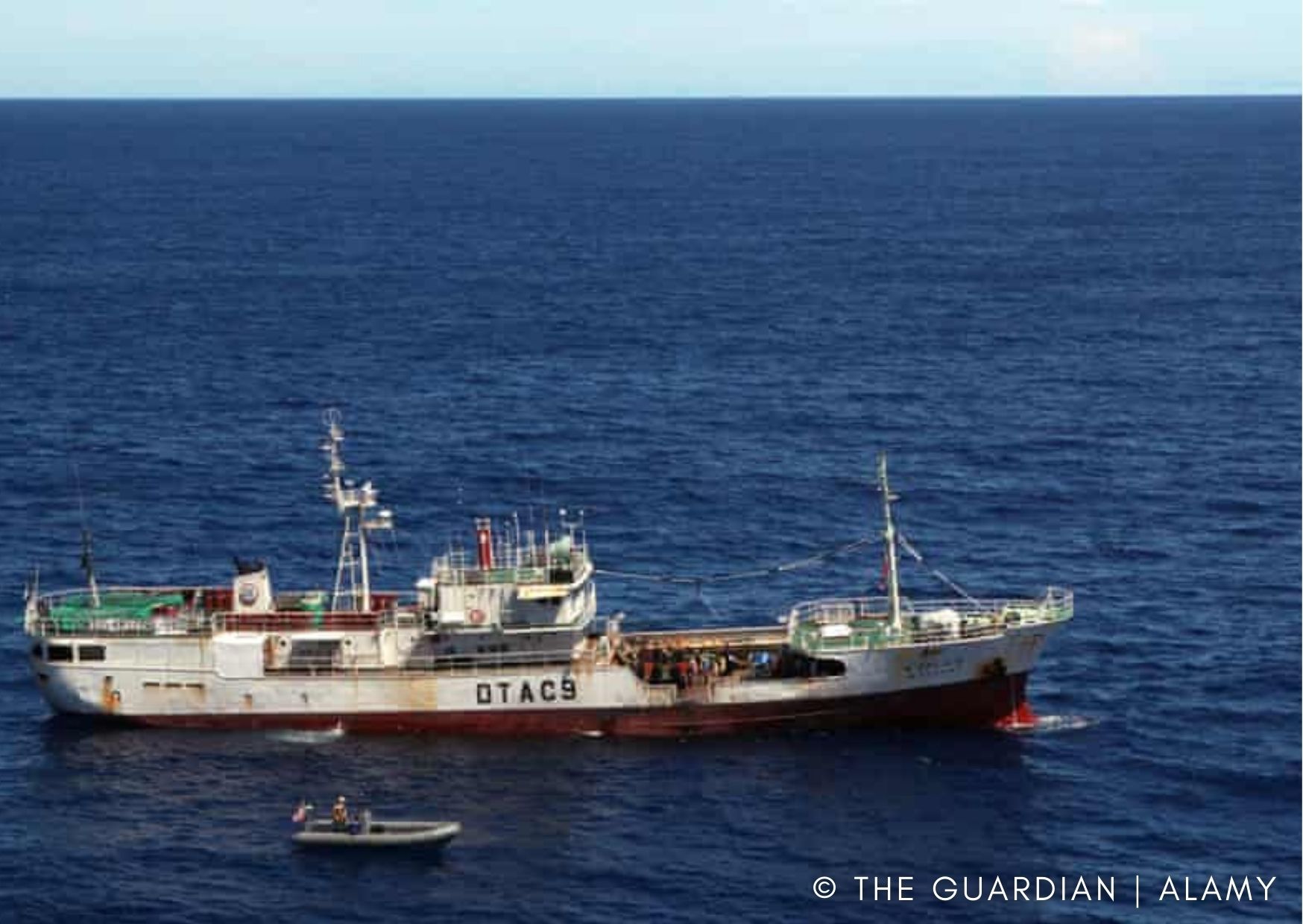
Kiribati to open one of world’s largest marine protected areas to commercial fishing
Date: 15 November 2021Media: The GuardianThe Kiribati government has announced it will open up one of the world’s largest marine protected areas to commercial fishing, citing economic benefits to its people.The Phoenix Islands Protected Area (PIPA) spans 408,250 sq km (157,626 sq miles) – an area about the size of California – and was created in 2006 with the entire area declared a “no-take” zone in 2015, meaning that commercial fishing is forbidden.Kiribati, a collection of islands in the central Pacific and which has an EEZ larger than the size of India, catches 700,000 tonnes a year of tuna. More tuna is caught in Kiribati’s waters than in the waters of any other nation in the world.Fishing illustration for Plundering the PacificWhy the world’s most fertile fishing ground is facing a ‘unique and dire’ threatRead moreIn a press statement issued on Monday, the office of the president of the Kiribati government confirmed it was opening the protected zone citing the huge economic cost to Kiribati, a developing nation, of the ban.“Similar to any Government, our decisions, as we make them, put the livelihoods of our people at the fore and have been carefully considered and agreed to as a Government,” it said.“Our decision as a sovereign country and Government is people-centric and commensurate with holistic options for marine protection and management, economic diversification, sustainable tourism and fisheries, to promote the growth of Kiribati’s blue economy, and uplift the lives of all I-Kiribati.”Dr Richard Jeo, Conservation International’s Asia-Pacific field division senior vice president, said that it was their “understanding that this proposal has not yet been introduced to Kiribati’s parliament.”“It would need to be formally approved by parliament before going into effect, which would likely not be until next year at the earliest. There is significant geopolitics at play in the Pacific region, and as a sovereign nation, Kiribati has the authority to decide on the future of PIPA.”Jeo said they remained hopeful that Kiribati would maintain PIPA’s marine protected area designation and would choose “to continue as a global conservation leader, standing lockstep with a global community that is committed to protecting 30% of land and sea by 2030.”But the Kiribati government said that when it established PIPA it was assured it would be able to recoup the revenues lost from fishing licences, which make up more than 70% of Kiribati’s total annual revenue, but that this had not eventuated.The government said years after PIPA’s inception it was not sufficient to meet the present need of the people of Kiribati and the country’s future development needs.The statement also reiterated the Kiribati government’s commitment to conservation efforts by investing in marine and biodiversity protection and promoting climate resilience.The government said that since PIPA’s closure to commercial fishing, there had been an 8% decline in demand for fishing in Kiribati’s EEZ translating to a loss in revenue of up to USD$146m from 2015 to the present.Former president Anote Tong, who was responsible for overseeing the creation of PIPA, expressed his strong disappointment with the announcement, but said the proper process, which involves a parliamentary vote on opening up PIPA to fishing, still had to be observed.“I’m very, very disappointed,” he said. “I never expected that this would happen. And this was precisely the reason that we put it into legislation. Because it had to be something that would remain regardless of any political changes.”
-
- 2,134
-
- 23 November 2021
-
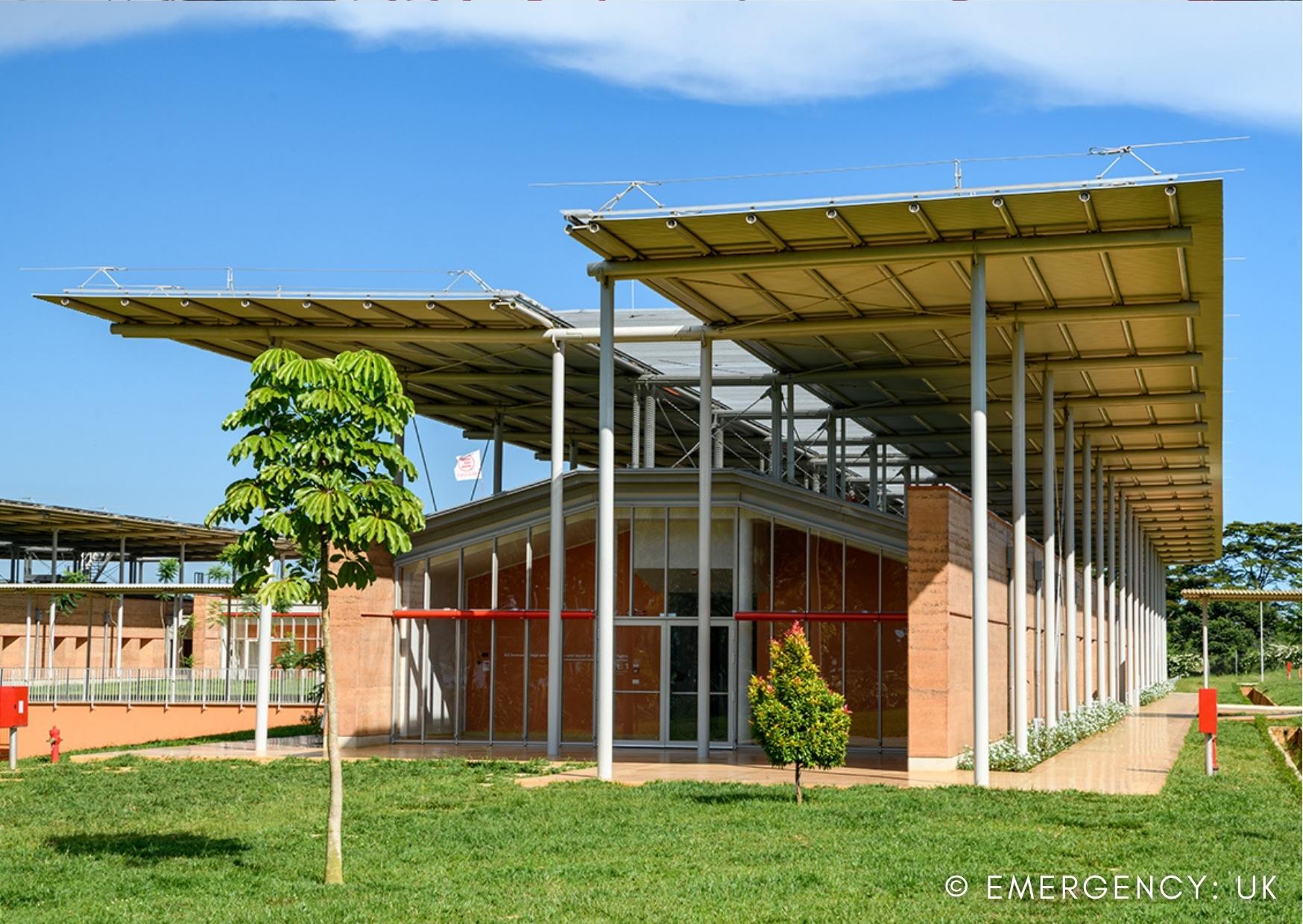
Museveni Commissions Ultra-Modern Children Surgical Hospital
ChimpReports6 November 2021President Yoweri Museveni has paid glowing tribute Dr. Gino Strada an Italian war surgeon, human rights and peace activist and founder of EMERGENCY, a recognized international non-governmental organization for the ultra-modern children surgical hospital in Entebbe, saying he has left a special gift for humanity right at the heart of the equator. Dr. Strada died in August this year before the official commissioning of the hospital that he was looking forward to. “Jesus died 2000 years ago but is remembered today because of his good deeds. Although Dr. Gino died, he has left behind a testimony of his character and contribution to humanity. The Italians have done something special for humanity right at the centre of the equator,” the President said. The President was today commissioning an ultra-modern EMERGENCY Children’s Hospital for children 0-18 years at Nakiwogo in Entebbe Municipality. The facility designed by World renown architect Renzo Piano on a pro-bono basis is earth friendly, constructed using innovative solutions to minimize energy consumption, combining architectural excellence with State-of-the-art medical care. It provides the best environment for patients’ treatment and recovery. President Museveni said the hospital, built on 30 acres of land donated by the UPDF (Special Forces Command) has got a number of interesting aspects; including the founder being a wonderful Christian with the concept of “caring about your neighbour as you love yourself” the core of Christianity; the architect as much as possible using nature and being environmentally friendly; and the donor Ms. Paola Coin, a rich, smart, small lady from the Italian city of Venus known for its story of Shylock, being a great philanthropist who donated US$8million towards construction of the hospital. “This land was for SFC cattle farm. When I heard of the hospital, I said this was a more lifesaving effort than the cows. We gave them 30 acres. I am happy that there is another idea of adding a nurses training centre which can be part of this facility. We must see how to take advantage of the dedication by our partners from Italy. If we can have a nursing training school where they can impact both the skills and the passion,” he said. The President later presented the 50th Uganda independence golden medal to the founder Dr. Gino Strada (Posthumously), the donor Ms. Paola Coin, the architect Mr.Renzo Piano, Rossella Miccio, President of EMERGENCY and Pietro Parrino, Director of EMERGENCY Field Operations Department. The 50<sup>th</sup> Independence Golden medal is given to individuals by the President in recognition of their outstanding service and loyalty to the country. The Entebbe hospital will become a referral point for surgery from patients across the continent. It is the second facility in EMERGENCY’s African Network of Medical Excellence (ANME), after EMERGENCY’s Salam Centre for Cardiac Surgery, built in Khartoum, Sudan, in 2007, which has treated patients from over 30 countries. Situated on the banks of Lake Victoria, EMERGENCY’s Children’s Surgical Hospital opened its doors on Monday 19 April, but due to Covid-19 restrictions, the opening ceremony took place after six months of activities. The facility has admitted 345 patients since opening, whilst 1,185 patients have been treated as outpatients. 355 surgical operations have taken place and the average patient age is five years old. Ms. Rossella Miccio, president of EMERGENCY said the hospital is rapidly becoming a referral point for paediatric elective surgery, in Uganda and beyond, as we are receiving patients from around the country and will soon open the doors to provide free of charge surgical care to children from neighbouring countries. “These first six months of activity clearly confirmed that there is a strong need of paediatric elective surgery in the region. A real partnership between international organizations and Ugandan institutions and professionals can pave the way to strengthen local capacity and to provide continuous secondary and tertiary quality care,” she said. At full capacity, the hospital will employ 385 local people, including 179 medical workers. The facility will be dedicated to training local staff, who will play an integral role improving paediatric surgery and medical care in the country. The Minister of Health Dr. Ruth Acheng said the facility cost Shs 117 billion and Uganda Government has facilitated it with a 20% contribution and will continue paying 20% of the running costs for 8 years until it is handed over to the Ugandan government.
-
- 2,237
-
- 9 November 2021
-
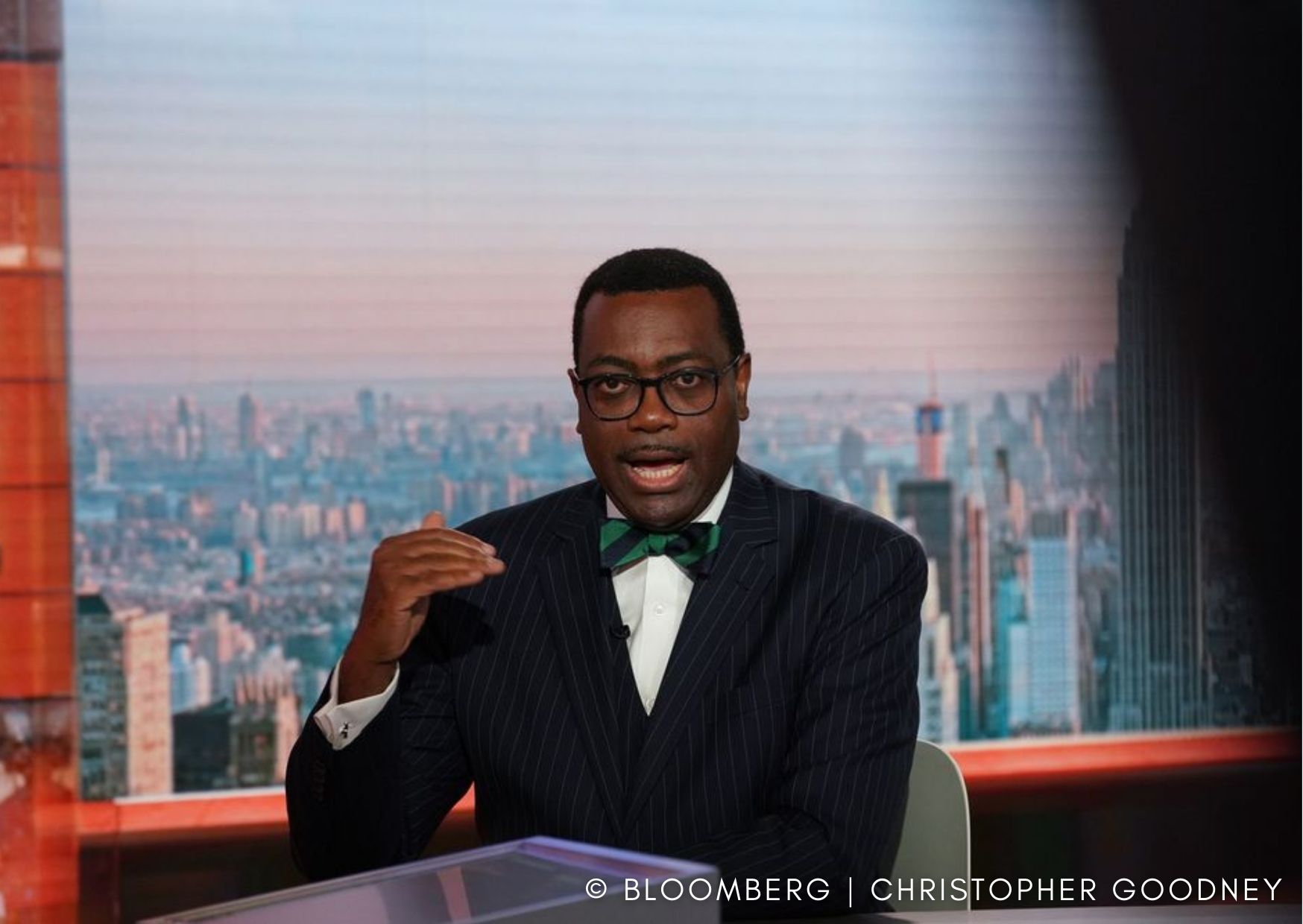
Natural Gas Key to Africa’s Energy Security, Says AfDB’s Adesina
Bloomberg4 November 2021Akinwumi Adesina Photographer: Christopher Goodney/ BloombergNatural gas remains key to Africa’s energy security and economic prosperity, even as political pressure grows to speed up the transition away from fossil fuels, according to the continent’s biggest development bank.“Gas is fundamental to Africa’s energy system,” African Development Bank President Akinwumi Adesina said in an interview with Bloomberg News on Wednesday. “We’ve got to make sure that we’re pragmatic” and that a system is created to support long-term development, he said.While natural gas is less polluting than other fossil fuels such as coal and oil, some environmentalists want to end its use because the industry is responsible for methane that has far more planet-warming power than carbon dioxide.For African governments like Mozambique and Tanzania, where more than $50 billion-worth of gas projects are being discussed with companies including TotalEnergies SE and Equinor ASA, it tops the development agenda. In Kenya where the national electricity grid is already 90% renewable, authorities are considering converting the remaining fossil-fuel power plants to use liquefied natural gas.Even if Africa tripled its natural gas output, it would add under 1% to its less-than 3% contribution to global greenhouse gas emissions, said Adesina. The world needs to “be fair to Africa” because the continent needs to industrialize and create jobs which requires a stable energy supply, he said.
-
- 2,180
-
- 9 November 2021
-
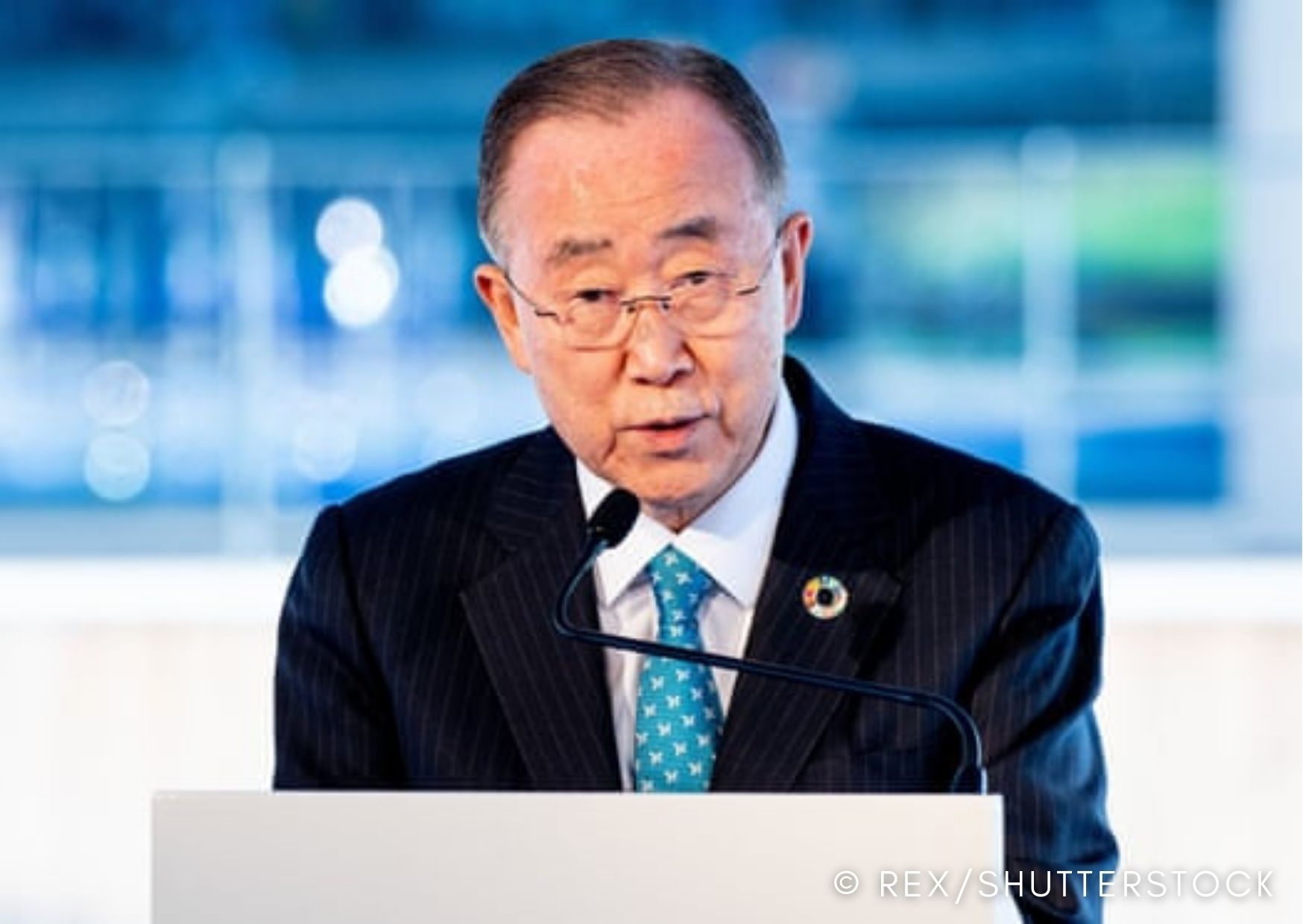
US and China urged to find way to work together before Cop26
Date: October 18, 2021 Media: The Guardian▲ Ban Ki-moon made the plea on behalf of the Elders group of former world statespeople and prominent community and business leaders. Photograph: Rex/ShutterstockUS president Joe Biden and the president of China, Xi Jinping, have been urged to meet before the UN Cop26 climate talks to search for common ground by the former UN secretary-general Ban Ki-moon and other prominent global voices.“We are appealing to the leaders of the US and China to see their common interest and find a way to work together. We need an ambitious 2030 [carbon] target from China and the US to deliver what they have pledged,” said Ban, speaking on behalf of the Elders group of former world statespeople and prominent community and business leaders.Xi met the former US president, Barack Obama, weeks ahead of the Paris climate summit in 2015, to forge a deal between the world’s biggest emitters.“Biden and Xi need to do what they used to do with Obama – the Paris agreement might not have been possible without those two countries,” said Ban. “We must do everything possible … Cop26 will be one of the most important in history.”Ban warned that current pledges on cutting emissions – known as nationally determined contributions, or NDCs – from major economies were insufficient to hold global heating to 1.5C, the aim of the Cop26 conference. “We need these NDCs to be ambitious enough. We need the right signals to strengthen the NDCs,” he said.Xi is unlikely to come to Glasgow for Cop26, which opens on 31 October, or to the G20 leaders’ meeting in Rome, which will take place the same weekend. He has not left China since the start of the Covid-19 pandemic.There are no current plans for a summit between the presidents, who lead the world’s two biggest emitters, and biggest economies. However, Xi and Biden recently had a long phone call in which the climate was discussed, and the US climate envoy John Kerry has held meetings with Chinese representatives.Ban is part of the Elders group of former world statespeople and prominent community and business leaders, which has written to the leaders of the G20 nations to ask them to strengthen their commitments on cutting greenhouse gas emissions before the Cop26 summit in Glasgow which begins in just under two weeks.“We are asking these countries to think again and be ambitious. All G20 countries need to take further actions to stay within 1.5C. Wealthy countries need to put more finance on the table [to help the developing world],” he said.The aim of Cop26 is to “keep 1.5C alive”, which means setting out a pathway to ensuring the world cuts emissions sufficiently to hold global heating within 1.5C of pre-industrial levels, the upper ambition of the 2015 Paris agreement. Scientific advice is that this will take emissions cuts globally of about 45% by 2030, compared with 2010 levels.Mary Robinson, chair of the Elders, said: “We are not going to close the gap at Glasgow, but we have to align with 1.5C – there has to be a political commitment to 1.5C. There has to be a process devised as to how to put pressure on the target countries who are not stepping up.”She said countries without adequate plans must return to the table with new plans every year, not every five years as envisaged under the Paris agreement.She also warned against people judging Cop26 a failure because the highest ambition – of fully fledged plans from 196 countries that would cut emissions by 45% – had not been met. “It’s extremely important that we do not have fatalism on Cop26, but keep hope alive,” she said. “We will see positive developments at Cop26.”
-
- 1,999
-
- 27 October 2021
-
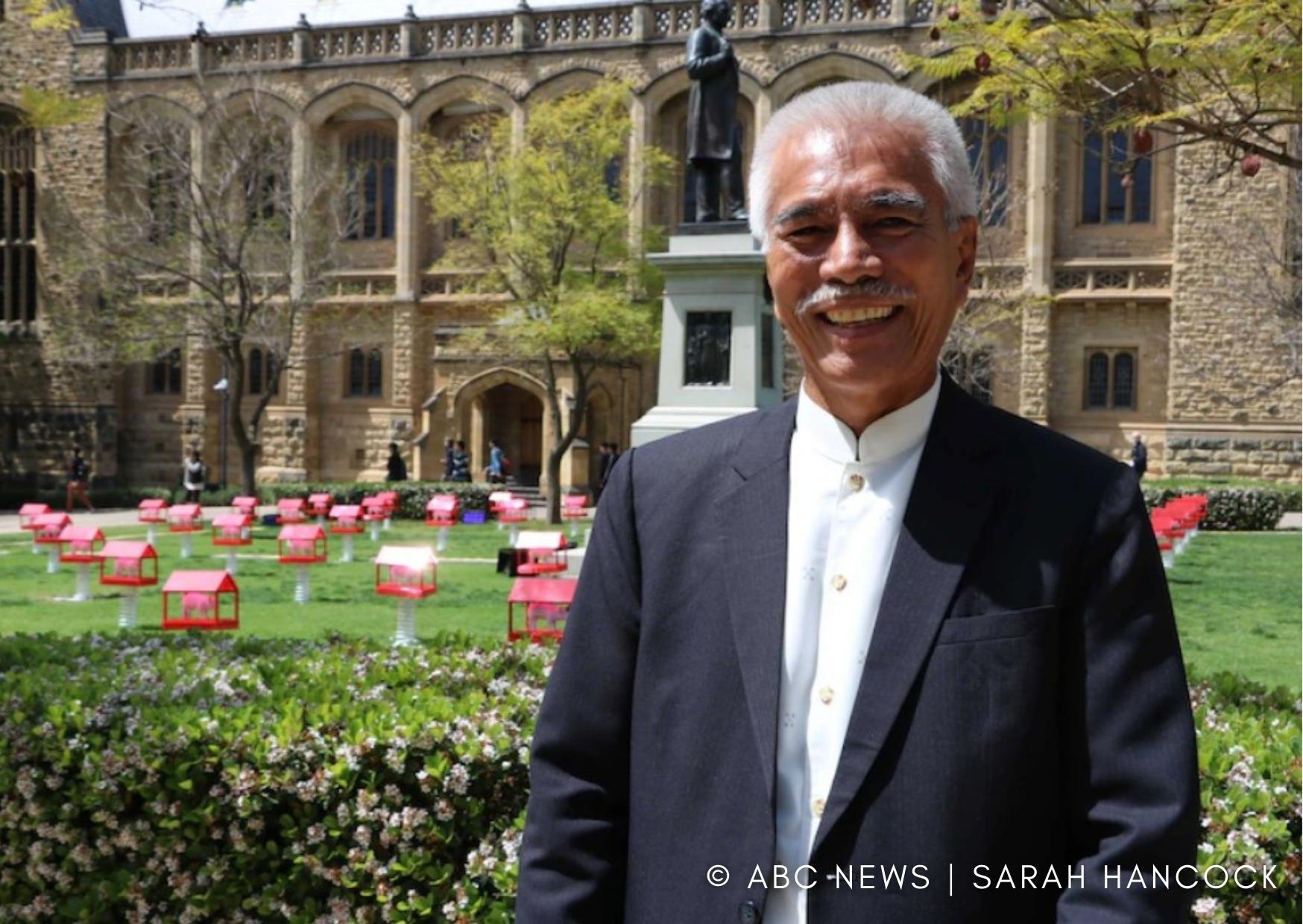
Pacific Island climate groups demand world leaders halt support for fossil fuel
Date: October 22, 2021Media: ABC NewsPacific Island climate action groups have demanded countries including Australia end support for the fossil fuel industry during the COP26 Climate Change Summit in Glasgow.The Pacific Islands Climate Action Network (PICAN), which includes environmental activist group Greenpeace, issued a list of demands to world leaders on Friday, saying they must provide \"a safe and habitable future for the Pacific Islands\". It called on wealthy countries to pump billions of dollars a year into developing nations to help them tackle the effects of climate change and cap global warming at 1.5 degrees Celsius.PICAN demanded wealthy nations provide developing states $US100 billion ($133.25 billion) annually until 2025 and increase that sum to $750 billion a year beyond 2025 so they can invest in technologies to help live with a changing climate.\"We do need finance and we\'re talking about billions … we need the technology,\" former Tuvalu prime minister Bikenibeu Paeniu said. Former Kiribati president Anote Tong told the virtual gathering of Pacific climate-action organisations the COP26 meeting would be the last chance to save Pacific Island nations from the worst effects of climate change.Anote Tong said for most people in the Pacific, their days were numbered.(ABC News: Sarah Hancock)\"I think what I\'ve always acknowledged — and I think we must also acknowledge — is for most of us in the Pacific, our days are already numbered because whatever happens, even if we cut emissions to zero tomorrow ... our future cannot be assured,\" he said.Pacific Island nations have become increasingly anxious about inaction on climate change and its looming consequences for their countries if the world does not reduce emissions.An Intergovernmental Panel on Climate Change (IPCC) report in August found the world had warmed by 1.1C on pre-industrial levels.It found that on the current trajectory, the Earth was likely to hit 1.5C warming about 2030.Documents leaked to Greenpeace and obtained by the ABC, showed Australia sought to change a major international draft report on climate change to promote a future for coal-fired power.\'Rapid\' phase-out of coal neededBritish High Commissioner George Edgar, who also spoke at the meeting, called on countries that had not submitted ambitious climate targets to step up. \"A growing number of countries have committed to ending overseas investment in coal, but we need to see an end to domestic investment as well and plans for the rapid phase out of existing coal-fired plants,\" he said.Former secretary-general of the Pacific Islands Forum, Meg Taylor, said she understood reservations about the shift away from fossil fuels but insisted the change would benefit communities in the long term.\"I understand the sentiments about the transition of economies from fossil fuel to carbon neutral. My own country will face that challenge itself,\" she said.\"In the Paris Agreement, it\'s very clear that in terms of the transition … economic development is very much part of the climate transition and countries are going to have to make those tough decisions themselves.\"
-
- 1,940
-
- 27 October 2021
-
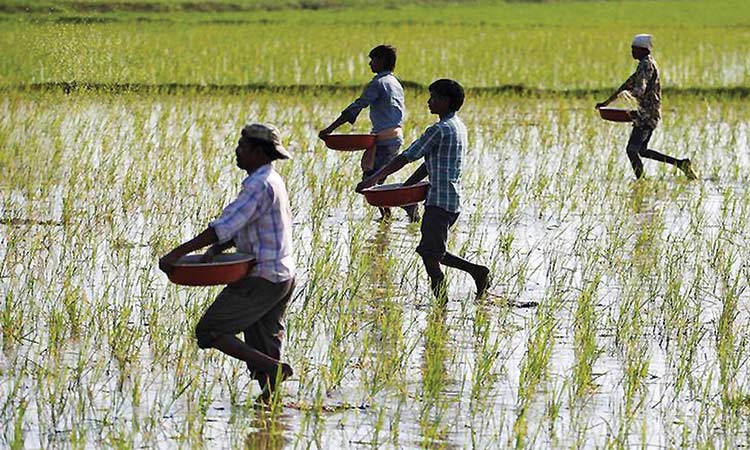
Smallholder farmers key to curbing climate crisis
Date: October 15, 2021Media: Gulf TodayBan Ki-Moon, The IndependentI grew up during the Korean War. Often, we had just enough to eat, but rarely enough to fill our stomachs. I was hungry all the time. Everyone was. This has given me a deep appreciation of where food comes from. Food and the food systems are paramount to all the challenges we face, especially for the people who work tirelessly to make sure we can feed ourselves and our loved ones — smallholder farmers. Around the world, there are more than 500 million smallholder farms, where the land is less than two hectares. Moreover, smallholder farmers produce 80 per cent of food while the agriculture sector provides 15 per cent of GDP and 40 per cent of jobs on average in Sub-Saharan Africa and Asia.Yet smallholder farmers, particularly women, often lack secure land tenure and access to markets and finance. They are also bearing the brunt of multiple crises of climate change, conflict, and economic downturn, as well as the impact of the COVID-19 pandemic, while at the same time being overlooked in global and national policy debates on these issues. In addition, they and their children are among those most likely to experience hunger and malnutrition, trapping yet another generation in poverty.If we want a world free of hunger and poverty while adapting to and mitigating the climate crisis, we need to put smallholder farmers right at the centre of our efforts to tackle these issues and to “build back better”. Governments and international aid groups can support a new generation of climate resilient farmers by increasing financial assistance for smallholder-focused climate adaptation.With less than 10 years left to meet the targets set in the Paris Climate Agreement and to achieve the Sustainable Development Goals (SDGs), two of the legacies from my time as UN Secretary-General, I am calling for a new consensus with smallholder farmers that would drive a radical increase in financial aid, coherent policies, inclusive planning, technologies, and capacity-building for agricultural adaptation.A new consensus with smallholder farmers to align policies, investments, and research across a wide range of stakeholders — governments, donors, civil society, private sector, and the farmers themselves — will ensure food security, protect biodiversity, and mitigate climate emissions at the same time. The Ceres2030 report which came out last year has laid out a roadmap on how we can achieve global goals to tackle the climate crisis and end hunger by 2030. It provides new evidence on what works to empower and support small farmers grow more nutritious and climate resilient crops, access irrigation and tap into social safety nets.In addition, the recommendations from the international organisation Global Centre on Adaptation’s flagship report, “Adapt Now: A Global Call for Leadership on Climate Resilience”, are key in this regard: improving smallholder productivity, supporting farmers in managing risks from increased variability and climate shocks, addressing challenges of the most vulnerable and achieving policy coherence.Data will also be a key tool for targeting interventions among smallholder farmers. Demand driven research and innovation are essential to address these specific needs. Only 10 per cent of countries have the capacity to collect or publish sufficiently disaggregated data on food systems. To channel resources efficiently we strongly rely on organisations like CGIAR to gather and translate data on the specific needs of smallholder farmers as environmental conditions continue to evolve. According to a 2020 report by the UN International Fund for Agricultural Development (IFAD) and the Climate Policy Initiative (CPI), smallholder farmers only receive 1.7 per cent of total global climate finance. Their actual financial need is estimated at $240bn (£175.2bn) per year globally, but the existing climate finance for them only reached $10bn (£7.3bn) in 2018. So, there is a huge gap.Channeling more funding to agricultural research and innovation through global networks such as CGIAR, and through joint initiatives such as the Africa Adaptation Acceleration Program (AAAP) and Agriculture Innovation Mission for Climate (AIM4C) will accelerate the development of technologies and crops that can be adopted by even the poorest farmers.More funding for smallholder farmers would ensure access to climate-resilient crops that can better cope with stresses such as drought, heat, flooding, salinity, and changes to the growing season. It will empower the excluded and the marginalized — women, indigenous peoples, pastoralists, fisherfolk, just to name a few — so they can produce the food we consume and the healthy diets we need with dignity and in a manner that is environmentally friendly and sustainable.The world has done much to reduce hunger but figures over the last few years show hunger levels are on the rise again globally — the latest UN annual hunger report showed one in 10 people went to bed hungry in 2020, a jump of around 118 million from the previous year — and the climate crisis poses a mounting threat to food production and distribution.
-
- 1,989
-
- 19 October 2021
-
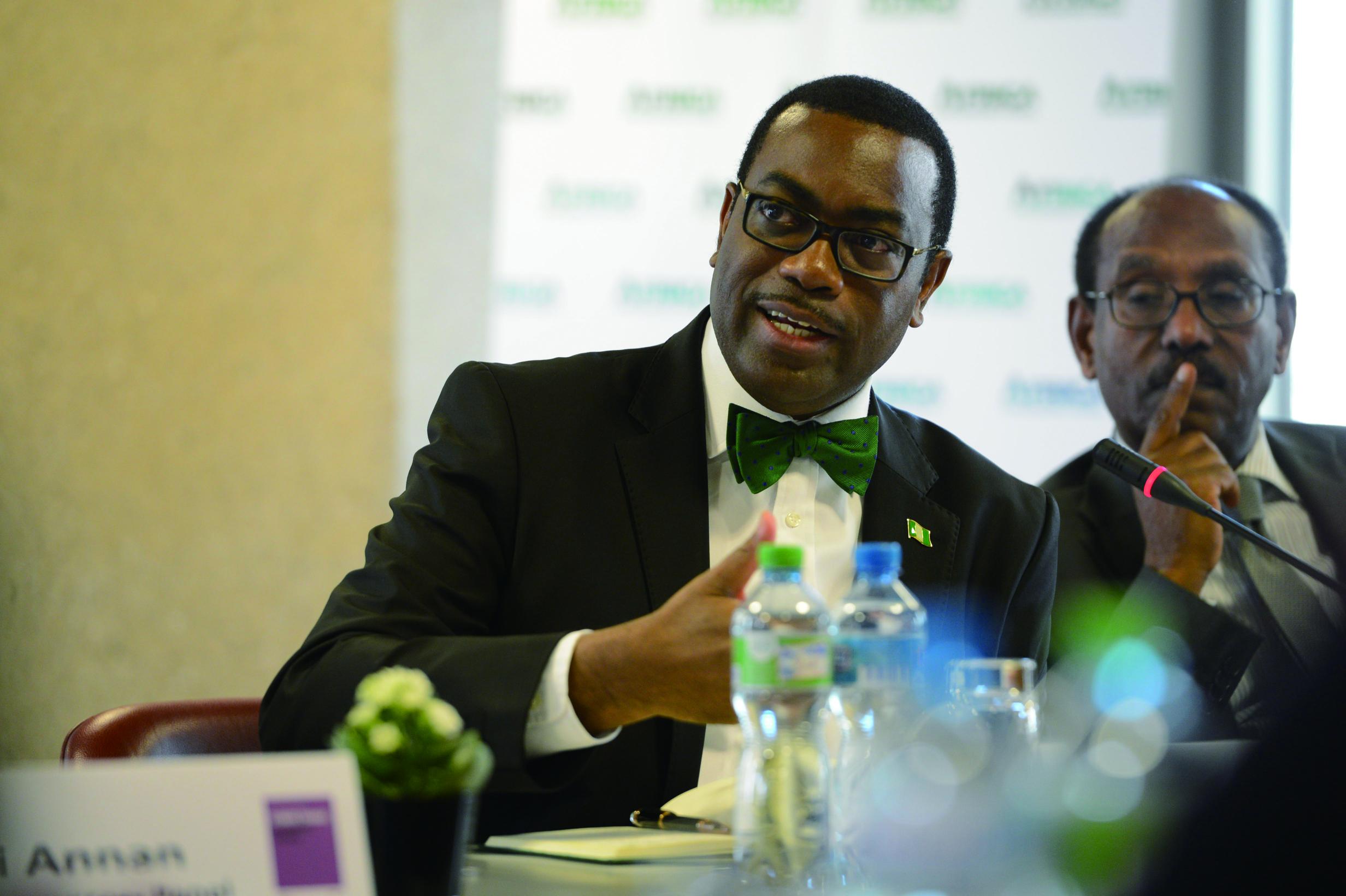
Africa Resilience Forum 2021: Facing the 'hydra-head challenges of Covid-19, conflict and climate'
Date: September 29, 2021Media: africanewsThe fourth edition of the Africa Resilience Forum opened on Tuesday, as the continent’s most vulnerable communities confront the triple challenges posed by the Covid-19 pandemic, conflict and climate change.An estimated 39 million Africans could slip into extreme poverty this year, as a result of the pandemic. At the same time, countries are facing higher fiscal costs, reducing capacity for the critical investments required to deliver on ambitions such as the UN Sustainable Development Goals.The Africa Resilience Forum is a flagship African Development Bank event which brings together key stakeholders across government, civil society, the private sector, and international partners, to reflect on the continent’s conflict prevention, peace, and state-building initiatives.Amadou Hott, Senegal’s Minister of the Economy, Planning and Cooperation, shared some of the successes from his country that could prove useful in the current crisis. Speaking on behalf of President Macky Sall, Hott said Senegal had adopted a legal framework that provides for flexible and secure public-private partnerships. He said the crisis “reminds us of the need to reorganize our priorities, to strengthen the social protection of our populations and to establish a more endogenous development.”African Development Bank President Akinwumi A Adesina highlighted the Bank’s work in climate finance and landmark green projects, including the $20 billion Desert to Power solar energy program, which will provide clean energy to up to 250 million people across 11 countries in the Sahel region.“Across Africa, rising expenditures on defence and security, increasingly displace development financing on essential services such as education, health, water, sanitation, and affordable housing…This compromises long-term resilience needed to bounce back better,” Adesina said. “The hydra-headed challenges of this pandemic, insecurity, and climate change, continue to impact young men, women, and children the most.” Going forward, Adesina said the Bank would work closely with regional member countries on security-indexed bonds to address the root causes of insecurity by protecting investments and livelihoods.Moussa Faki Mahamat, Chairperson of the African Union Commission, said the continent’s wealth of natural resources and historic solidarity could “lay the groundwork for resilience.” He added: “The Covid pandemic made it possible to identify vulnerabilities and required a new vision for reform.”Day one featured two further sessions: one on the competing needs of development and security, especially in the prevailing environment of heightened fiscal constraints, while the second focused on climate adaptation, an emerging antidote to the destructive impact of extreme weather.The security panel featured Abebe Aemro Selassie, Director of the International Monetary Fund’s Africa Department, Dr. Jean-Claude Kassi Brou, President of the Commission of the Economic Community of West Africa States (ECOWAS), and Adriano Afonso Maleiane, Mozambique’s Minister of Economy and Finance.Minister Maleiane, whose country has been hit by both climate and security challenges, described the impact of the latter alone: “Today, spending on security is equal to investment. Without security (there is) no investment, no growth, nothing.”The next two days of the Africa Resilience Forum will centre on action around investing in women, youth employment, closing the digital divide, and boosting manufacturing in transition states. This year, the Forum will also serve as a platform to learn about the Bank’s new strategy for addressing fragility and building resilience in Africa (2022-2026).Learn more here about the 2021 Africa Resilience Forum (https://bit.ly/3ogQonb).Distributed by APO Group on behalf of African Development Bank Group (AfDB).
-
- 1,889
-
- 8 October 2021
- Sunhak Peace Prize
-
Future generations refer not only to our own physical descendants
but also to all future generations to come.Since all decisions made by the current generation will either positively
or negatively affect them, we must take responsibility for our actions.

